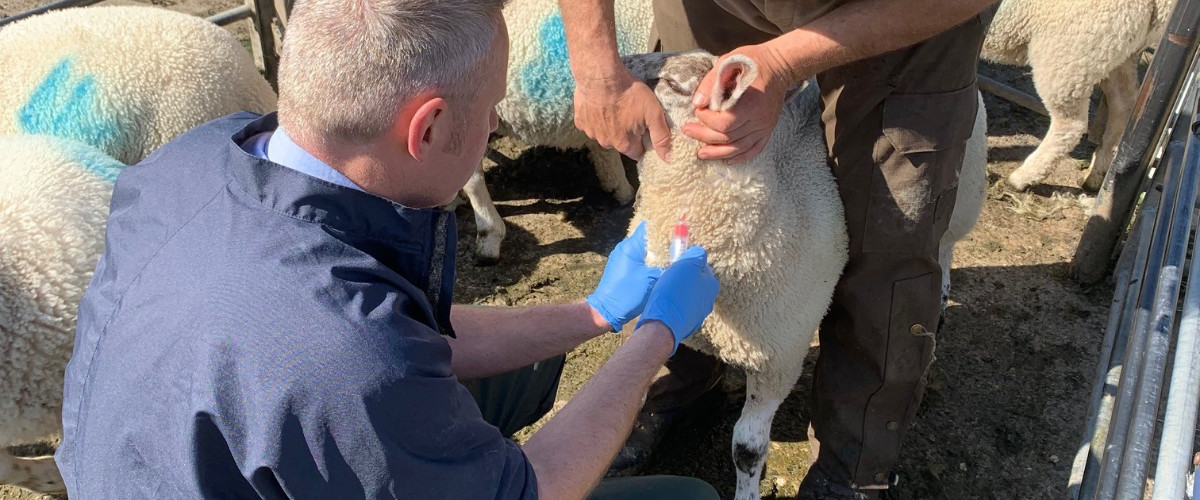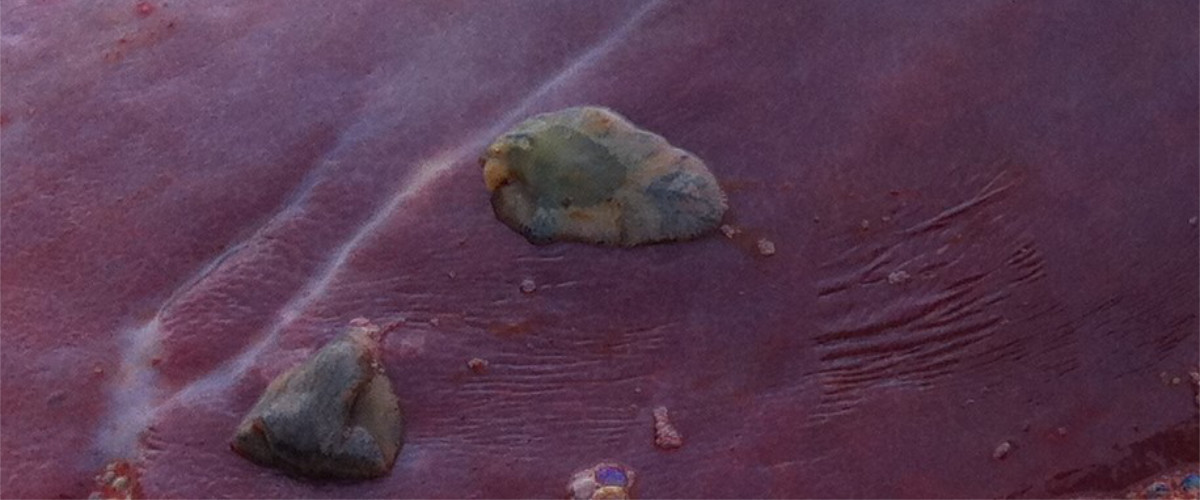The data show below was collected in the study that took place in 2019 and isn't a representation of the current spread of Liver Fluke across the country
An independent group of practices working together to map fluke outbreaks in the United Kingdom.
In the treatment of liver fluke, triclabendazole is the only the active ingredient able to kill all life stages of the parasite. However, in some parts of the country there is now firm evidence that resistance to this flukicide has developed. Widespread resistance to triclabendazole puts us all in a very difficult position. From a treatment perspective, we’ll struggle to prevent the substantial damages caused by fluke: liver condemnation in abattoirs, lamb deaths in acute cases, and loss of performance in chronically affected sheep and cattle. The aim of XLVets Fluke Sentinel initiative is to encourage more testing for fluke infections. 30 veterinary practices, from Orkney to Devon, will be blood sampling lambs for fluke infection and the results will be shown on the map below (a red flag means that fluke infection has been identified).
Resources
Keywords
- Antibodies
- Seroconversion
- Serology
- Biochemistry
- A protective protein produced by the immune system in response to the presence of a foreign substance (antigen). Liver fluke infection will stimulate the production of antibodies.
- The period during which a specific antibody develops and becomes detectable in the blood. After seroconversion has occurred, infection can be confirmed by blood testing.
- The scientific study or diagnostic examination of blood serum measuring the antibody response of the immune system.
- The area of science concerned with the chemical processes and substances that occur within living organisms.
Sentinel Map
The methods for testing for fluke infection
Testing an animal for fluke is fraught with difficulties, a critical factor is knowing that fluke takes up to 12 weeks to reach maturity and begin producing eggs. During this immature phase the fluke migrate through the liver, damaging its structure, and affecting its ability to digest food and remove toxins from the blood. This leads to acute liver damage, production losses, weight loss and even death. If a sheep survives this acute phase of infection then the fluke infection will become chronic and the sheep will suffer slow liver failure as the fluke lives off bile, liver tissue and blood.
Early detection of fluke infection in a flock is important to minimise the effects of acute fluke and the associated production losses in a flock. The various methods of fluke monitoring are:
Prediction
Forecasting fluke infection is useful but must be done on a farm by farm basis with factors such as soil type, water courses, grazing rotations and weather conditions all being involved. Knowing whether fluke is active on other farms in a region can help a farmer decide if fluke may be active in their own flock.
Serology - blood sampling for the detection of antibodies to fluke infection
Detecting antibodies provides a very good indication whether an animal has been exposed to the parasite, however, it does not indicate if the infection is active or historic. The best group of animals to test are new-season lambs as they can only have developed antibodies to fluke infection in the current year; a positive result in a lamb means recent exposure to fluke, therefore, lambs tested this way act as sentinels for the rest of the flock. Interpreting the presence of antibodies in older animals is extremely difficult as these antibodies may have been present due to exposure in previous years. The antibody test is relatively inexpensive and accurate and can detect antibodies from 2 weeks after fluke infection.
Biochemistry - blood sampling for the detection of liver enzymes
Detecting liver enzymes in blood can indicate liver damage, which may be due to fluke. This test is not specific to fluke as there are many causes of elevated liver enzymes. This test is often used when there is a clinical suspicion of fluke and can be used early on in the infection, from two weeks, where other tests would fail to identify the presence of fluke.
Faecal copro-antigen testing
It is possible to detect enzymes produced by fluke in the faeces of infected sheep. The presence of these enzymes indicates active fluke infection and the fluke can be detected 2-3 weeks before they start to produce eggs so giving a slightly earlier detection compared to egg counts . This test is most useful in assessing the effectiveness of dosing as successfully treated animals should have negative results after 1 week.
Faecal egg counts
Detecting fluke eggs in faeces is a good way of identifying active infection in a sheep. However, a negative result does not confirm the absence of fluke in an animal (‘false negative’). One reason being that fluke eggs only start being produced 12 weeks after infection, by which time a lot of damage may have been done to the liver. The other reason is fluke eggs are only sporadically produced in low numbers so it is possible to test an animal with active mature fluke infection but not find a fluke egg. It can also take up to 3 weeks after treatment for all eggs to be expelled from the sheep so testing for treatment efficacy is a slow, and unreliable due to ‘false negative’ results.
Post-mortem
The nature of post-mortems means that the animal can not be saved but the information it can provide for the rest of the flock is invaluable whether the animal died due to fluke or not. Checking a carcass for fluke is a straightforward procedure and can be done on farm with rapid and definitive results. Animals slaughtered in an abattoir will also have their livers examined as part of the inspection process and any fluke damaged livers should be recorded. If possible, get this information from the abattoir as it will help to make treatment choices in the whole flock.



